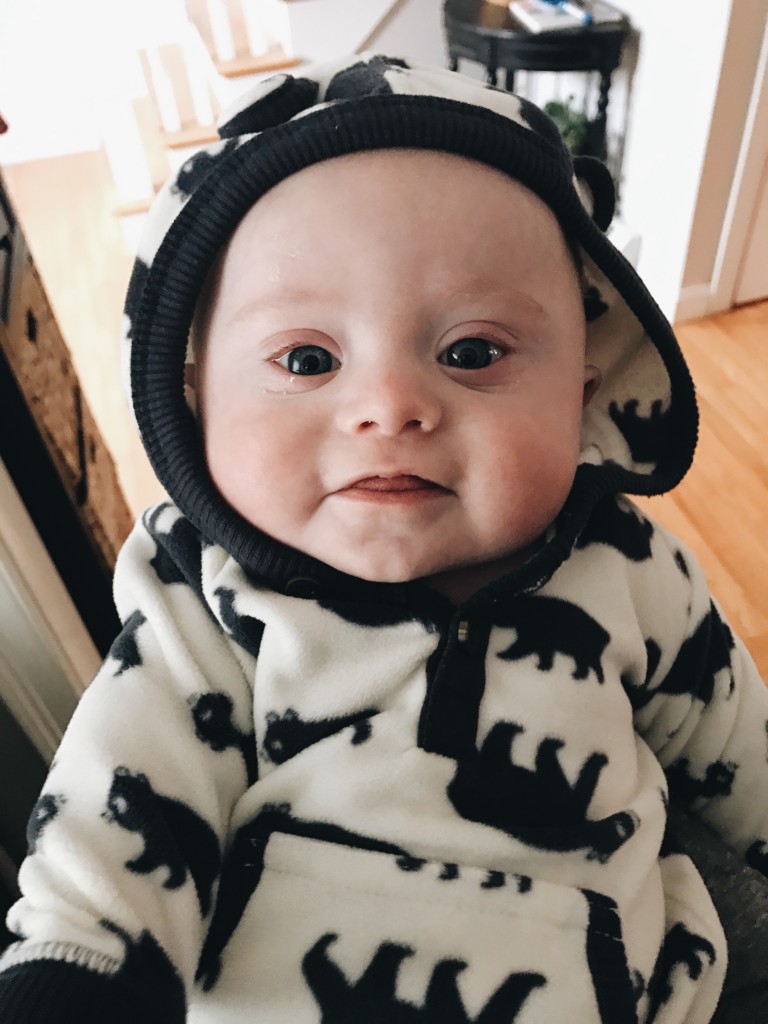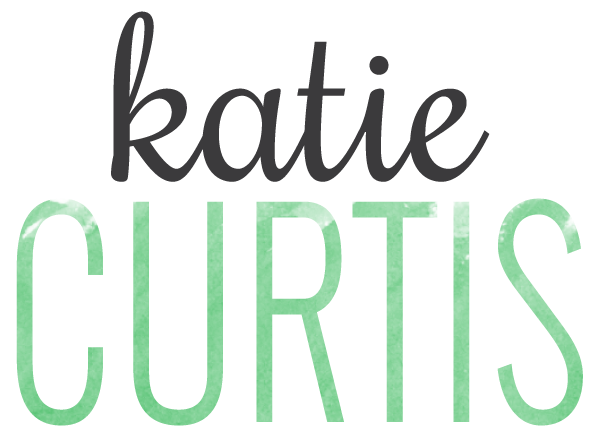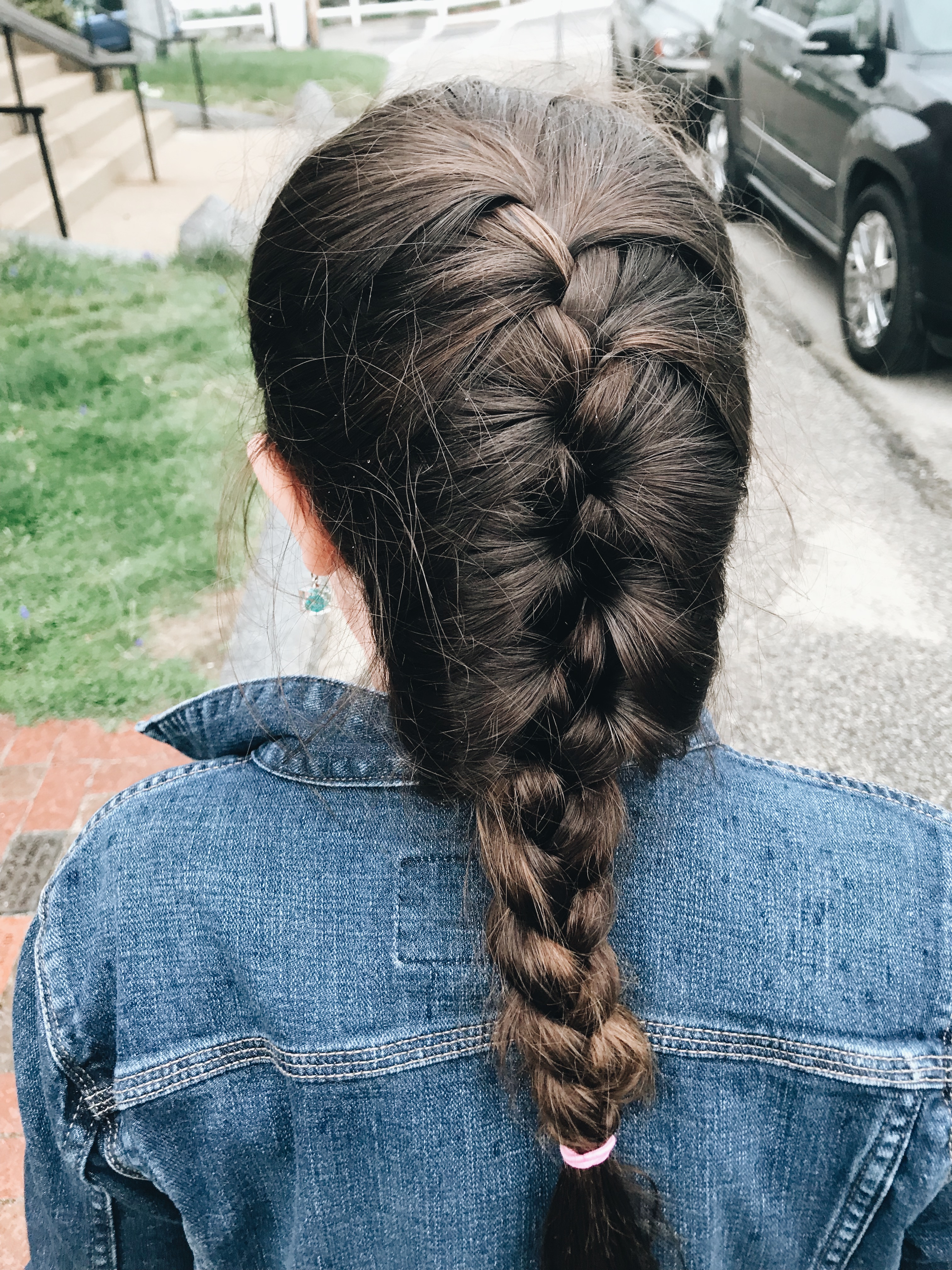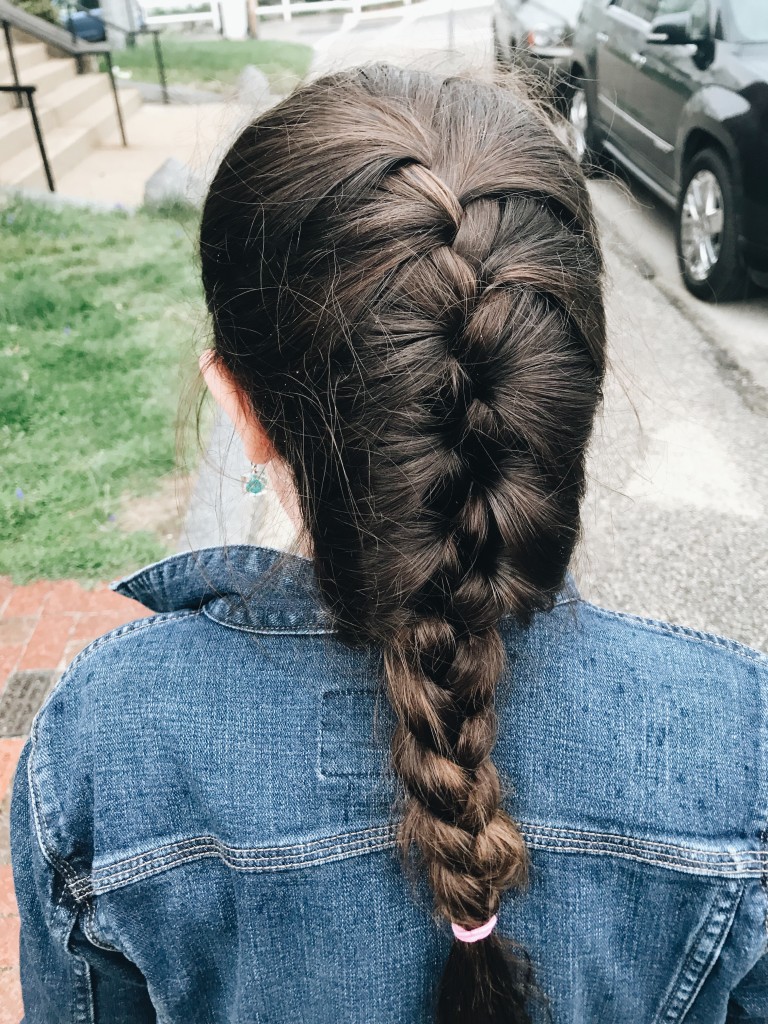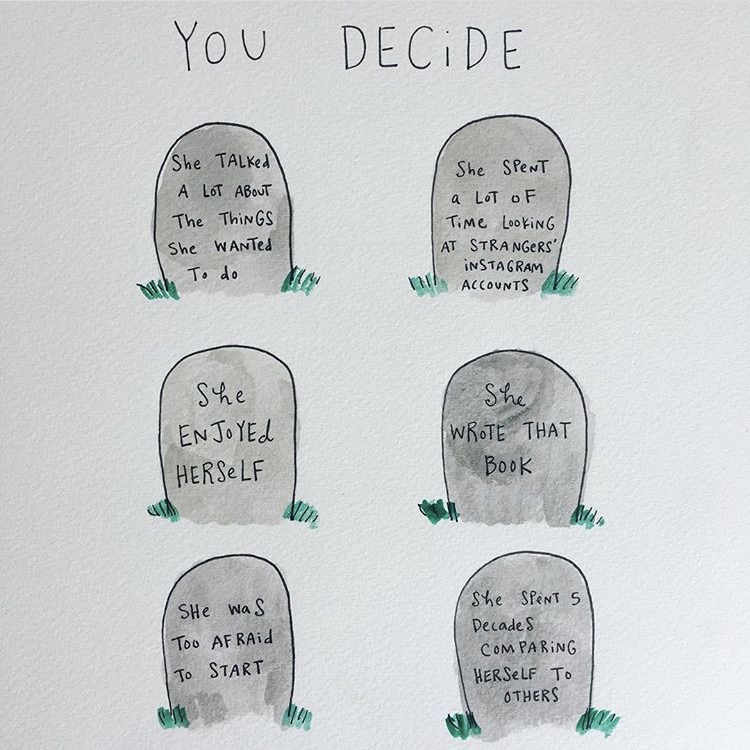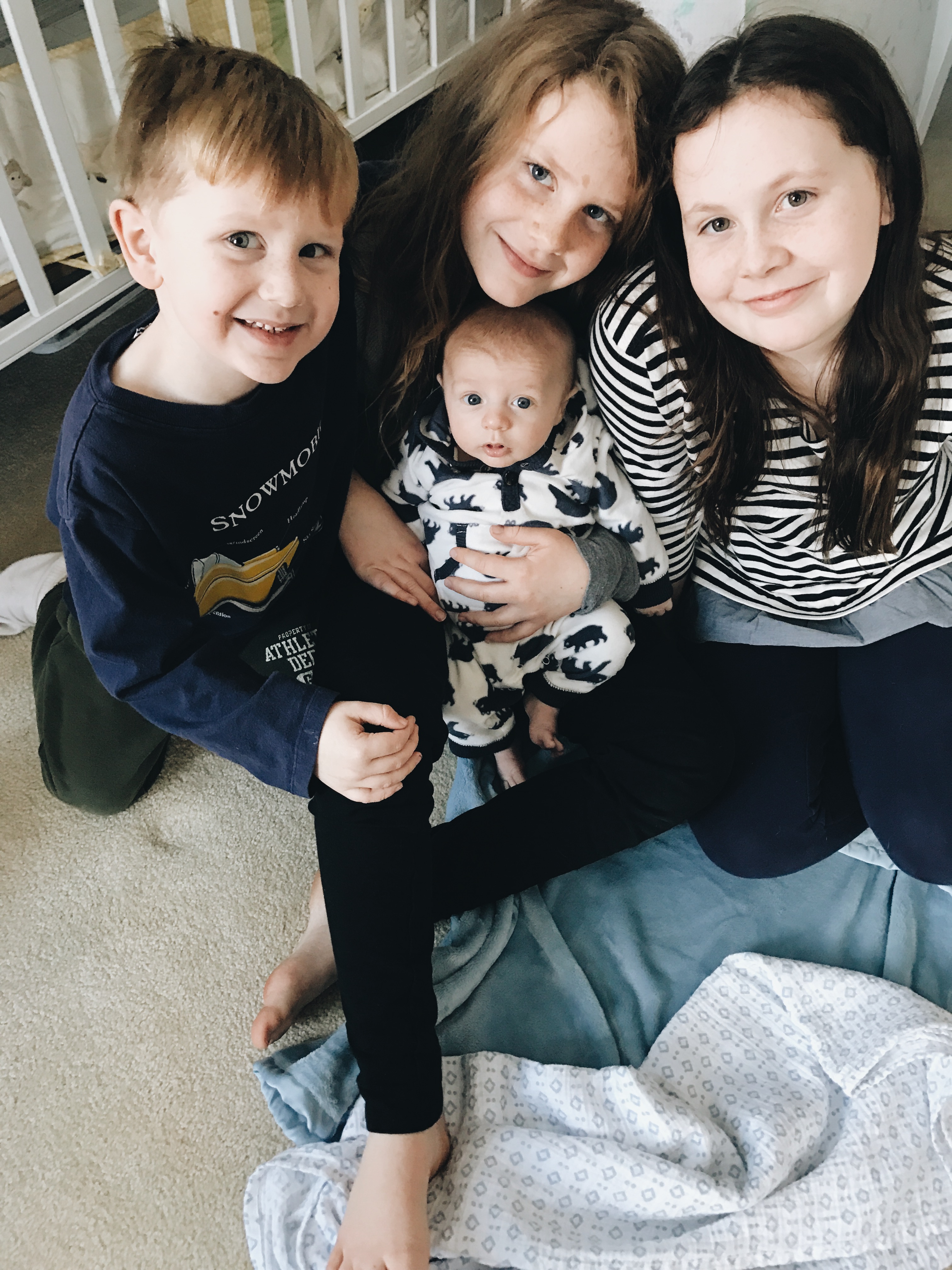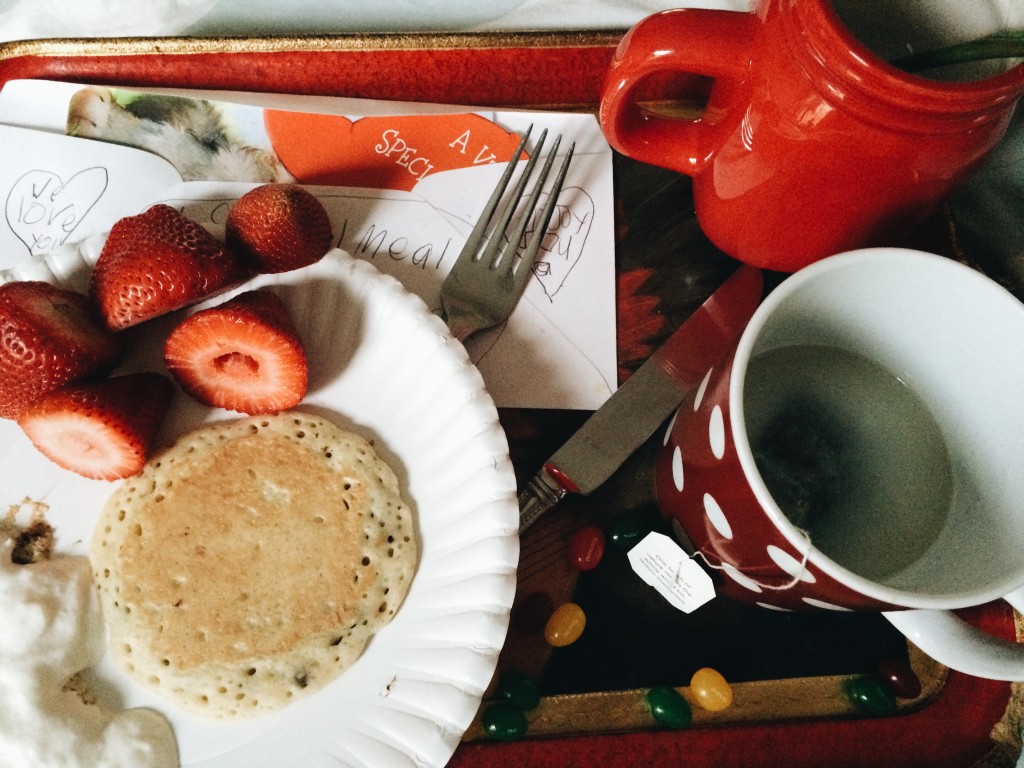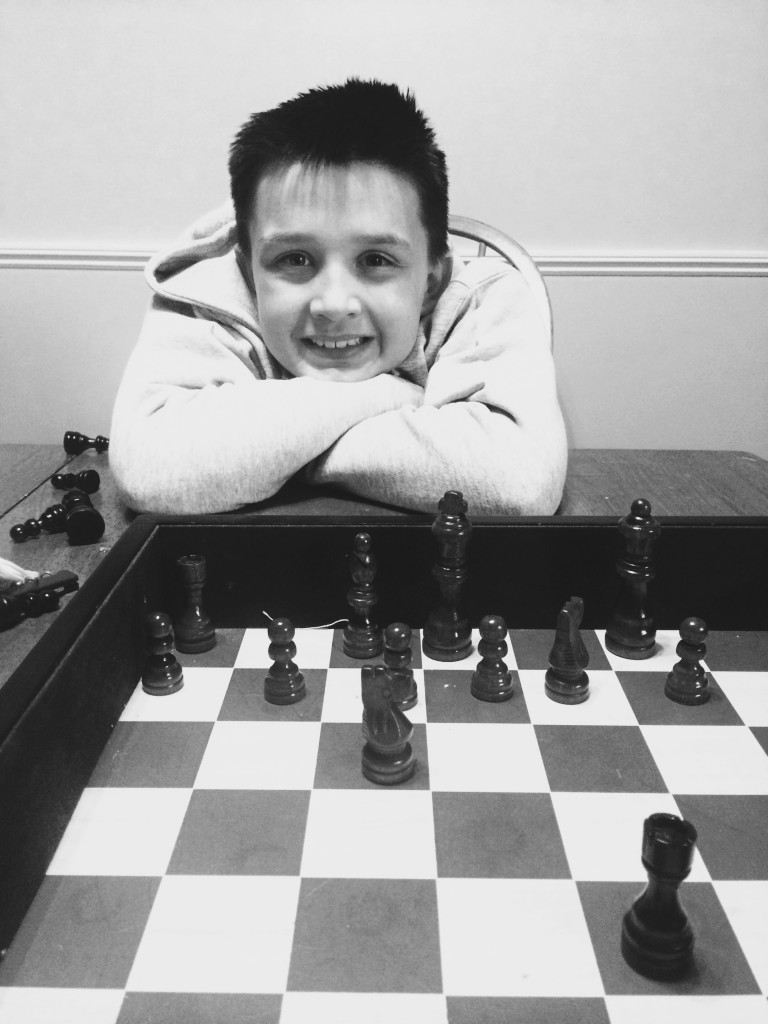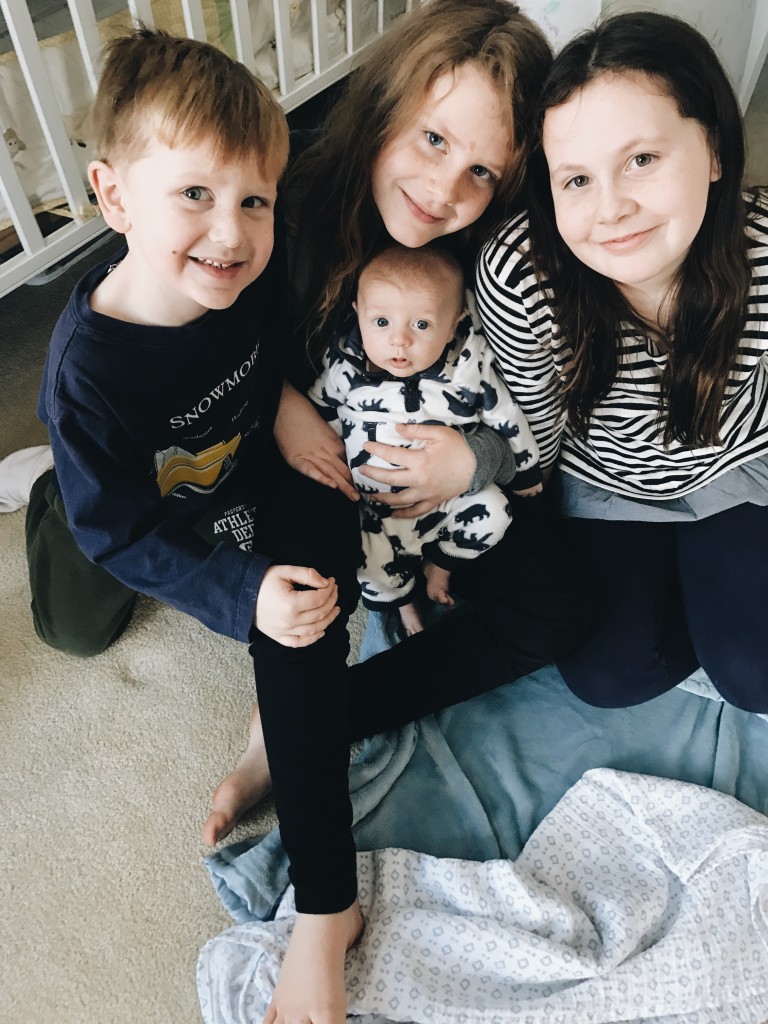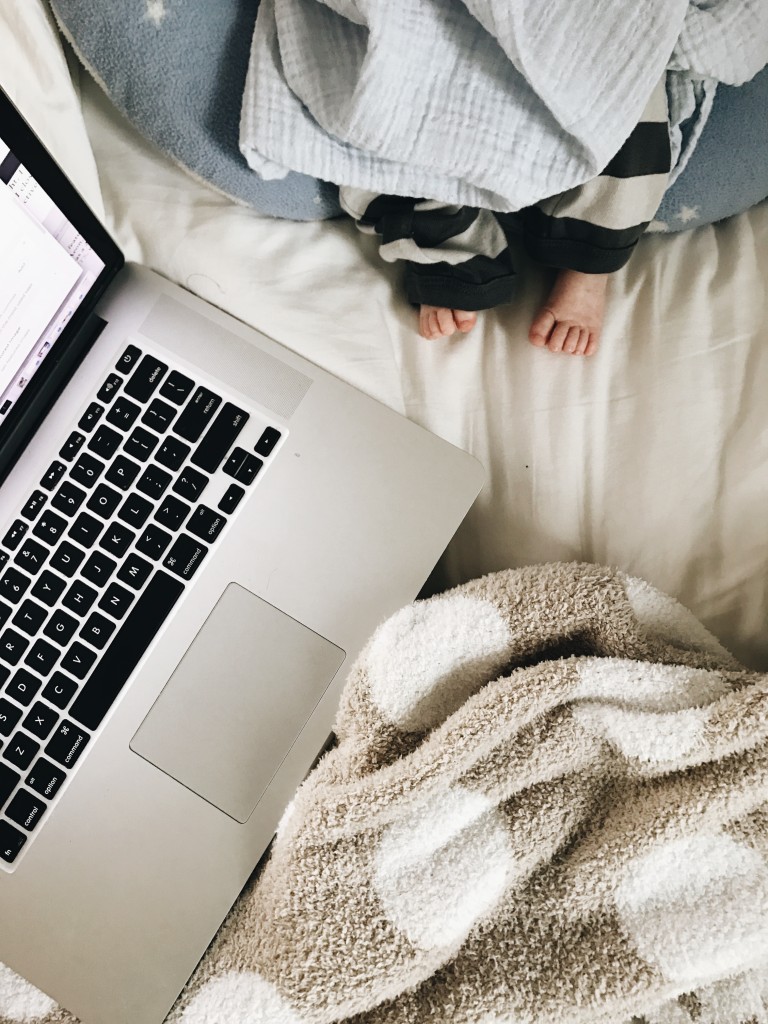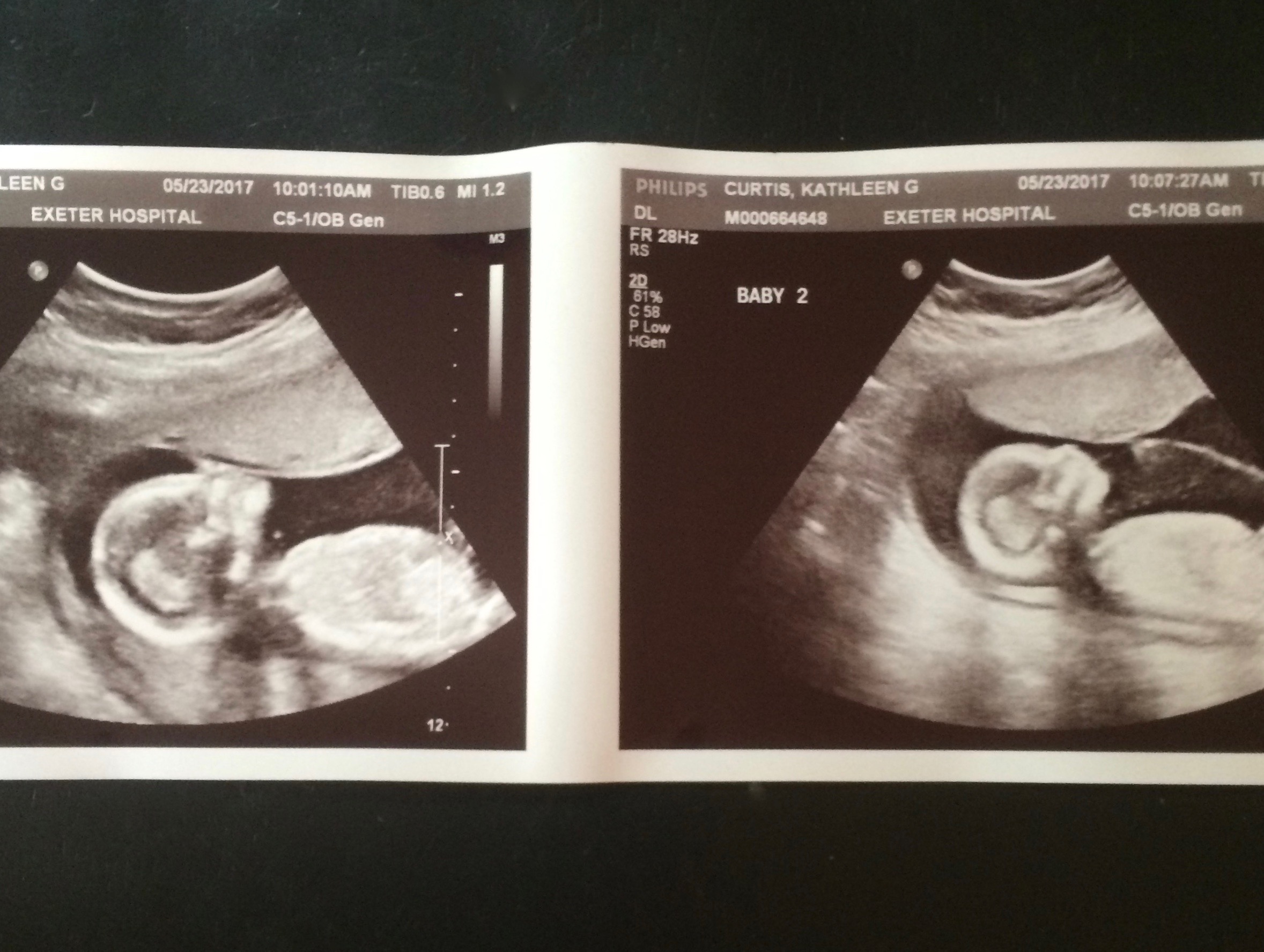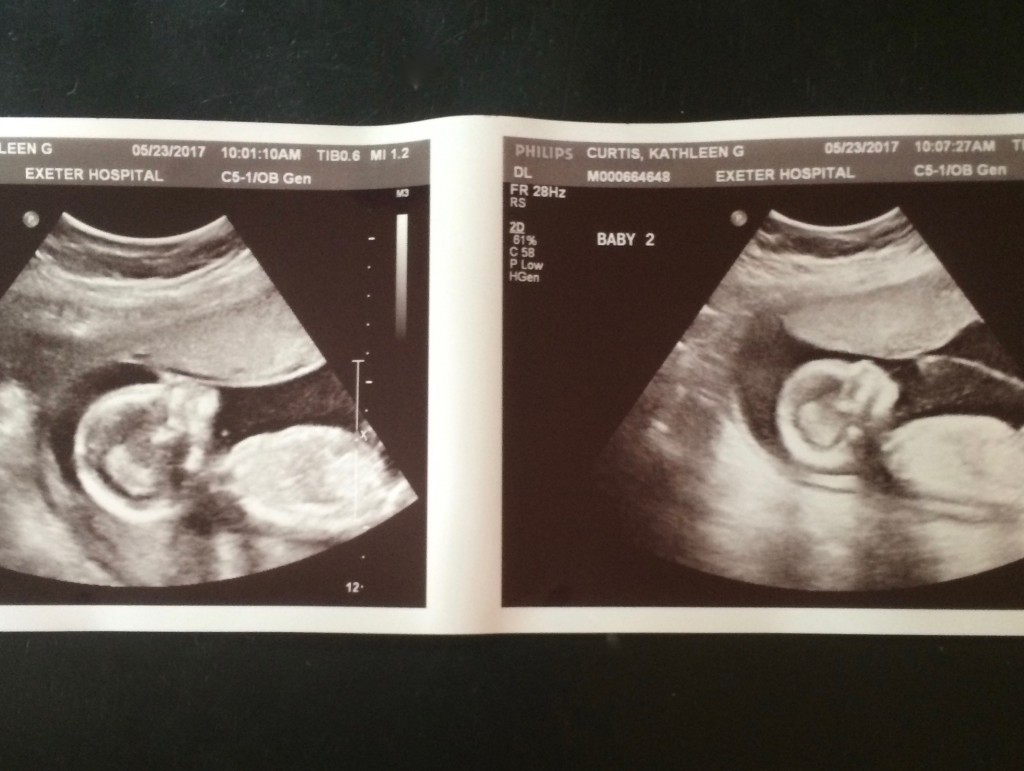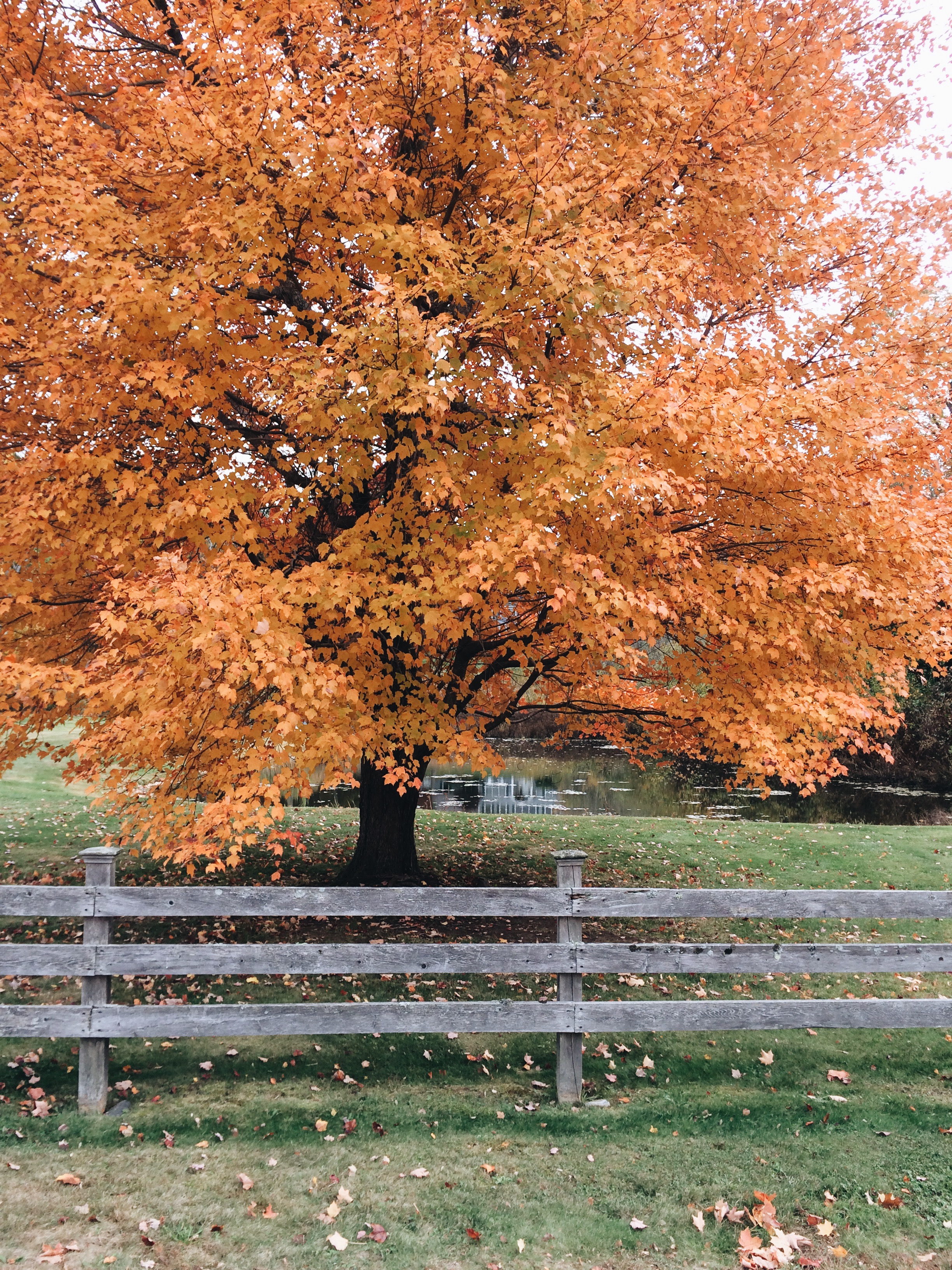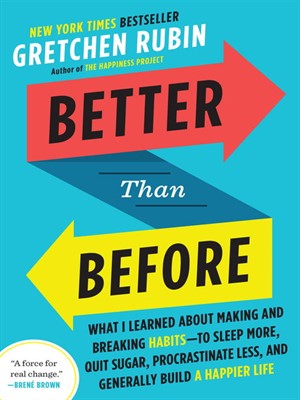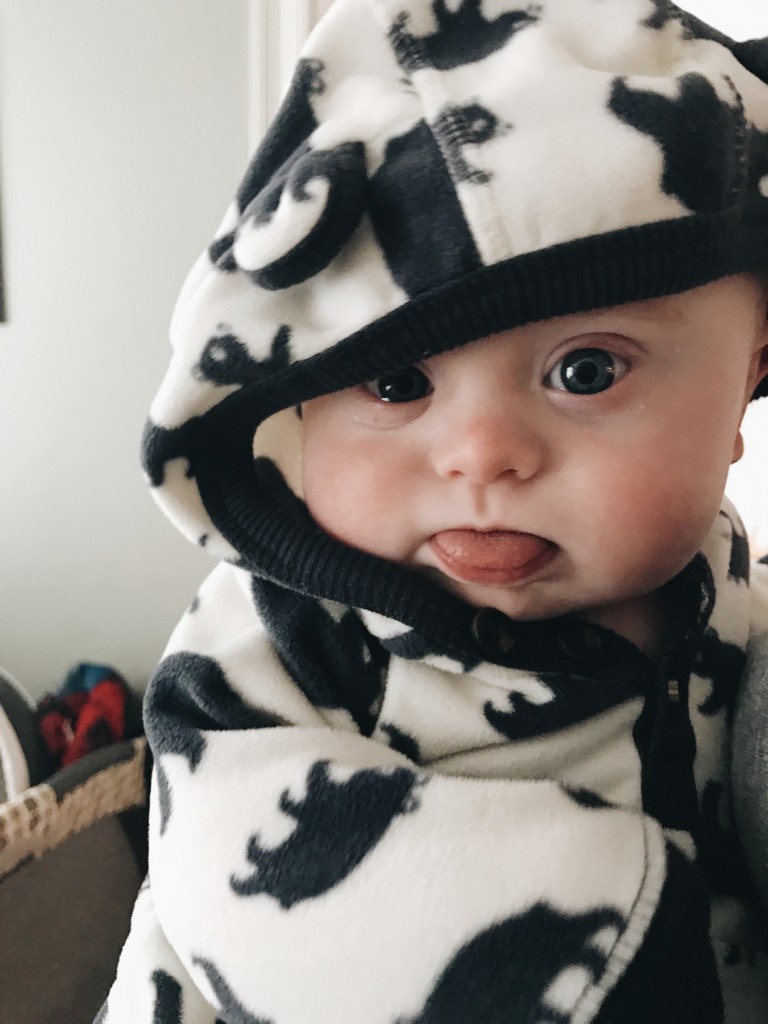
Sometimes our most definitive moments are loud – a birth, a death, an accident, a promotion.
But sometimes they happen quietly, in the smallest of spaces between otherwise ordinary moments.
I was thinking about this the other day as I was giving our baby Ronan a bath. About the path that led me to him, to being the mother of a child with Down syndrome. His birth wasn’t the defining moment for me – it happened much earlier, when I was a grad student working towards my PhD in Philosophy.
I was taking a course on French Existentialism – a lot of Sarte and Camus. My professor was a middle-aged gentleman with a Scottish last name and good sense of humor. In the course of reading the material, there was a section on the randomness of our own existence. I remember my professor expounding on the happenstance of our mom having an egg and our dad having a sperm and they met, and it was you, and if it had been a day, a week, a month later, you wouldn’t be you. It would be a different egg, a different sperm. Logically all of this is true. And the conversation was basically, as soon as you embrace this fact, as soon as you accept that randomness, then you get to move on to clear, rational thinking. My professor had a pretty clear attitude that anyone who thinks differently is an intellectual peon.
So your existence was entirely dependent on two microscopic physical things meeting. And that’s it. Nothing more. He went on from there to discuss some other point, but I was stuck. Logically, this was true but it left out so much about human existence. Like you are loved, that you are known, that you are fearfully and wonderfully made. I was totally depressed by this idea. I know because when I left class and was filled with these thoughts, someone bumped into me, and they looked at me and said, “Geez, why don’t you try smiling. You look miserable.”
This strangers’ comments woke me up to how low I must have gotten while stuck on this idea – it actually showed on my face. I remember looking around after they said it, at the very modern campus of SUNY Albany in the throes of late winter, and everything was white and brown and stark, with sharp angles and no curves, nothing soft, no color or beauty or life or hope. The world view I was surrounded by – literally and figuratively – was so bleak.
It hit me right then, as I looked around: You get to choose. Beauty or bleakness. Meaning or Randomness. It’s up to you. It’s up to each of us. Either way, it’s faith. We get to choose which version to put our faith into. But what I knew for sure was that without that belief that you matter, that you mean something, that your life has worth and value, that you are loved, everything else we can talk about as humans falls flat. In that moment in between classes on a winter day, I looked up at the sky and thought: I choose beauty. I choose meaning. I choose joy.
And then my eye caught on a tree that was just starting to sprout tiny green buds. The instant I made that choice, I could see life, beauty, new growth.
It was shortly after this that I found out I was expecting my first child.
From the moment I glanced at a positive pregnancy test, I loved my child. And in the next heart beat there was a feeling to protect and nurture this life.
By the time I was seven months pregnant, I was in my second year of my Phd program, and I had to present a paper I wrote for my Medical Ethics class. The paper was on the ethics of aborting children who through testing were shown to have Down syndrome or other genetic problems. I chose the topic since I had a special needs sister. In preparation for this paper, I remember reading a book by a father who had a child with Down syndrome, and he listed all of the difficulties of life with him in his attempt to be honest. It was his account of how he experienced Down syndrome. But between the lines of his honesty, I remember it was clear that intellectual capabilities were very important to him as a writer, and that much of his difficulty came from his son lacking in this sacrosanct area.
My research also led me to a program at Mass General on Down syndrome education. The doctor who led this group was frustrated at how the medical community had previously treated Down syndrome. The goal of this group was awareness. They lobbied that if you look at the actual lives of families who have a child with Down syndrome, they are full of joy and happiness and report high quality of life, much higher than the medical community previously reported. They hoped to connect those who may have a baby with Down syndrome with those families living with those same children to at least explore what life looked like before they decided to abort.
Most people have heard the stories of unsuspecting parents giving birth to a baby with Down syndrome and being told, ‘they will never say I love you. They will never lead a normal life.’ So much fear. We don’t have to look too far in our past to a time when Down syndrome meant institutionalization, and in many parts of the world like China and Eastern Europe this is still the case. (Side note: these children are up for adoption and you can see their faces on the website for Reese’s Rainbow, and it will break your heart.) This group, I was excited to learn, was trying to dispel this fear through sharing stories.
As I researched this topic, I imagined what I would do if I had received this test result for the baby I was carrying. I could follow the logic of my professor for this course – a very liberal, funny, brilliant woman – who held, like my Scottish professor, that this child growing was just a random egg, and a random sperm, and if one of those things was ‘faulty’ then of course, like making a mistake with the measurements of ingredients while making a cake, you could just dump out the batter and start again.
But every cell in my body went against this idea. I fell back to that definitive moment in between my classes, in the courtyard where someone pointed out to me what it did to my soul to believe that one life is just a random occurrence. It can be erased like the period at the end of a sentance.
I realized that there was no way I could do anything but love my baby, with the same love that had sprung up the instant I learned that an egg and sperm had met. That wouldn’t change if they had Down syndrome. It would bring with it concerns and questions, ones that this program at Mass General was trying to address, but throw it out like cake batter gone bad? Erase like a period at the end of a sentence? Impossible. My paper argued that it is a form of selective prejudice that is morally harmful to society, since it impacts the way we view members of that group who are living. My professor made it very clear that she disagreed with my conclusion.
This type of thinking from the professors in my program weighed on me. Continuing to view the world in this secular, rationalist way was making me depressed. Later, a friend whose brother was a priest shared with me that the hardest time of his years in the seminary were the ones studying modern philosophy. I had loved getting my Masters in philosophy at a Jesuit college, couldn’t wait to teach philosophy in literature, and had loved my time teaching logic and ancient philosophy at Nazareth College in upstate New York. But here, over and over, my classes slammed the innocent. When we were reading Justice is Fairness by John Rawls, we were following his treatise about building a fair and just society that broke down barriers based on race, sex and economic status. I can get behind that, says every compassionate, rational person, including me. And then you get to the part where he is building it back up, and holds that if a citizen is mentally incapacitated then they are not protected by the constitution, since only the members of a society that contribute to that society should justly receive its benefits. That’s only fair.
Wait, I thought. How did we go from making society fair and just to saying that someone with special needs doesn’t have the rights of the constitution? We all know the last time we had human beings who were not protected as equally as other human beings it looked a lot like slavery. Another student in my class was the mother of a child with special needs, and she raised her hand and asked, is he really saying that? Yup, said yet another professor who agreed with this view that faulty humans are less than. It’s the only way a truly just society can be structured.
While other biases such as racism and sexism (which are active in our culture for sure) would not be tolerated in a modern liberal philosophical text book, a bias against the mentally handicapped is supported, championed even, right there in black and white.
My travels in my Philosophy PhD program are certainly not the first time our society has revealed that we hold a deep bias towards those with disabilities. But for some reason that I couldn’t know at the time, it was intensely personal for me to simultaneously be a new mother and buy into the world view that human lives don’t matter unless they are smart, productive, successful. The contradiction between these two experiences, these two viewpoints – that life has meaning in and of itself, or it doesn’t – affected something deep in me. I grew anxious, and snappy. Debating these truths with people who were very satisfied with their choice that life is random and can’t be ascribed meaning grew so exhausting, and everything outside of my smiling boy seemed dark and heavy.
Based on how miserable my program was making me and how happy I was when I was with my son, a happy, healthy, chubby six-month old baby (and the lack of philosophy jobs), my husband and I agreed that it made sense for me to stay home and pursue writing and raise our family. After all of the arguing and emptiness of my philosophy program, it was a relief to focus on nurturing and nourishing things: food as a way to show love, motherhood, writing a novel filled with hope.
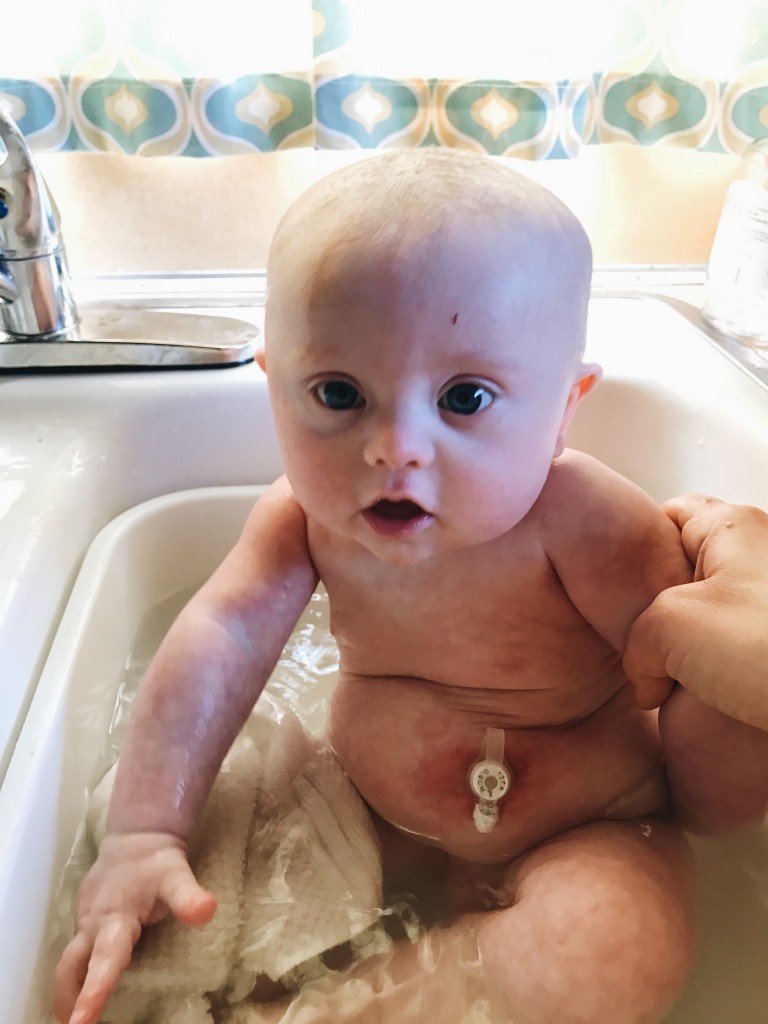
I was remembering this whole path as I squeezed warm water over Ronan’s tiny body, his eyes staring at me, smiling when my eyes met his.
Many people in the world he was born into hold the view that he was just a random egg and sperm meeting. And when they met, they created a defective human. Faulty. Less then. Throw in some medical science to further prove he is just a statistic, and say that the fact that I had him and his brother at 40 was not the result of a meaningful creation, but one of pure, rational probability, since there is a higher incidence of twins and Down syndrome with advanced maternal age.
But what all these statistics and theories can’t explain is why having these boys has made me so indescribably happy. How Ronan is hard-wired for love, for innocence. That I feel a peace that I am exactly where I should be in this universe. How much joy he brings.
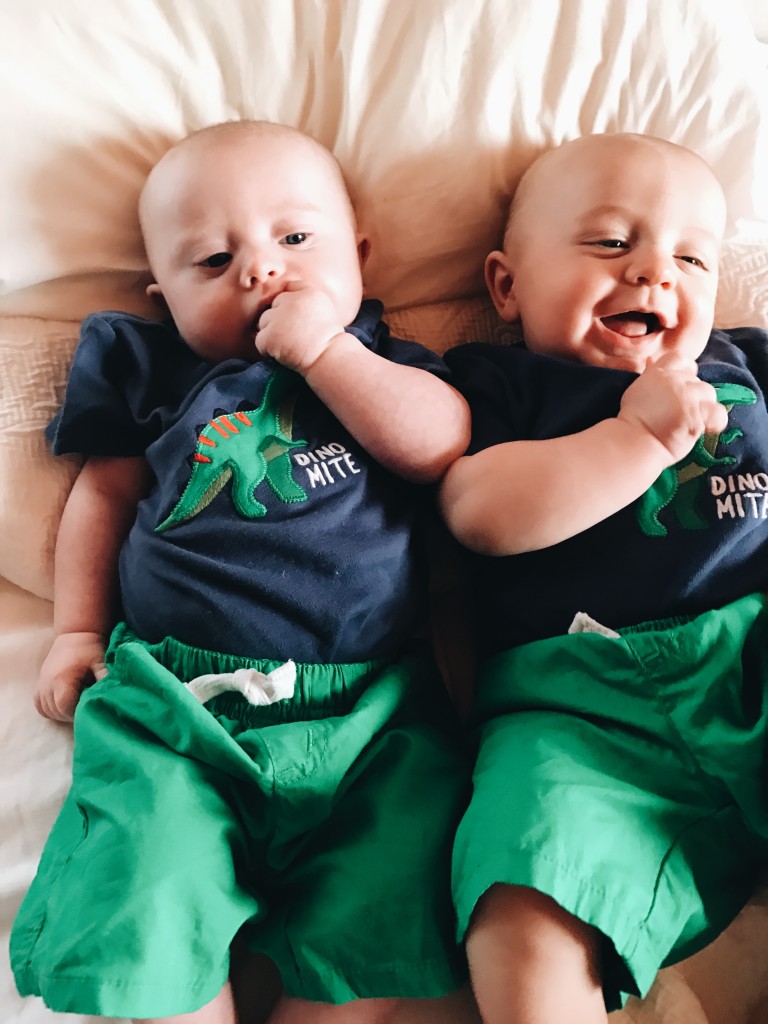
That moment when I realized we all get to choose, and I chose meaning and joy, prepared me more than any other to be Ronan’s mom. And having Ronan feels like that faith was rewarded. Now I get to receive joy over and over again by being his mom. His life is such a gift – he has already touched his family and community deeply. He has already sowed the seeds of friendship with new friends. The same society that views him as not a whole person he is strengthening, softening, building, one person that meets him at a time.
The reality of these two world views doesn’t just play out in philosophy classrooms. Iceland just bragged that they eliminated Down syndrome by eliminating every child that had a positive prenatal diagnosis. Last month, my husband was at a work event and when a gentleman said he had two kids, he added they were pregnant with a set of twins, but one had Down syndrome, so they aborted both of them. When I saw one OB doctor in our practice and told her that I wasn’t afraid of Down syndrome, she indicated it was ok for me since I didn’t have a demanding job, unlike her doctor friend who (rationally) decided she couldn’t care for a Down syndrome child and do her job, so she aborted them.
I am not trying to shame these choices. They were operating according to the rationalistic philosophical tradition our society values. Throw out the faulty cake batter.
But I can say now why this view leaves so much out about what is good, about what it means to be human. Just as objectively holding that life is random hurt me down to my soul that day in my philosophy class, holding that a specific life doesn’t matter because of Down syndrome also hurts our society. We are diminished because those lives didn’t matter. Because their smiles are not here.
So how does a society break out of its bias?
By telling stories. By programs like the one at Mass General. As the philosopher Iris Murdoch says, by having a philosophy that can talk about love. She was also a novelist, and came to believe that ‘art goes deeper then philosophy’. What philosophy can’t do, a painting, a novel, a photograph can do. It can move us, it can touch our deepest selves. It can let us speak of love.
Murdoch’s idea that we need to be able to talk about love in philosophy and art gives me hope. It’s hard to talk about systematically, categorically eliminating a group of people like those with Down syndrome if we think – if we see – that are very capable of love. Love casts out fear. And if there is one main factor that leads to eliminating people with Down syndrome, it’s fear.
Uncle Tom’s Cabin did more to end slavery then any philosophical treaty, and it was born of a mother’s love. When the author Harriet Beecher Stowe lost her baby right after childbirth, she thought of the grief of slaves who were mothers and had their children forced out of their arms, and then wrote her famous book that changed society.
Writing and art can say things that were silenced in my philosophy classes – things like you matter. Your life has worth. You are loved.
So maybe the compassion that is being showed by mothers of children with Down syndrome will help people view this diagnosis differently. I am well aware that my voice is just one in a beautiful symphony happening now. And Ronan is only five months old. But I will slowly try to tell his story.
For anyone who gets a test result or a diagnosis of Down syndrome, know that it might test your faith. But you don’t need an existential moment about the meaning of life to know what to decide. You can just listen to the stories of how the mothers that chose keeping their baby had their faith rewarded with immense joy. You can see their beautiful children radiate joy. Choosing that their life matters will always be choosing joy.
